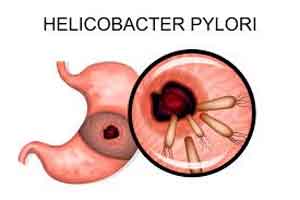- Home
- Editorial
- News
- Practice Guidelines
- Anesthesiology Guidelines
- Cancer Guidelines
- Cardiac Sciences Guidelines
- Critical Care Guidelines
- Dentistry Guidelines
- Dermatology Guidelines
- Diabetes and Endo Guidelines
- Diagnostics Guidelines
- ENT Guidelines
- Featured Practice Guidelines
- Gastroenterology Guidelines
- Geriatrics Guidelines
- Medicine Guidelines
- Nephrology Guidelines
- Neurosciences Guidelines
- Obs and Gynae Guidelines
- Ophthalmology Guidelines
- Orthopaedics Guidelines
- Paediatrics Guidelines
- Psychiatry Guidelines
- Pulmonology Guidelines
- Radiology Guidelines
- Surgery Guidelines
- Urology Guidelines
Atorvastatin may complement antimicrobial therapy in H. pylori eradication

Atorvastatin can be an efficient complement of conventional antimicrobial treatment of Helicobacter pylori to improve the rate of bacterial eradication, a recent study has suggested. The study, published in the Journal of Gastroenterology and Hepatology found that addition of atorvastatin to a four-drug regimen of omeprazole, clarithromycin, bismuth, and amoxicillin, effectively eradicated H. pylori.
Also, the addition of atorvastatin to H. pylori eradication therapy was found to be more effective in patients with non‐ulcer dyspepsia.
"H. pylori is identified to be the main cause of gastrointestinal diseases, such as gastric cancer, chronic gastritis, gastric adenocarcinoma, and peptic ulcer disease. Therefore, its eradication is of great importance. H. pylori is difficult to treat, and its successful treatment requires simultaneous administration of several antimicrobial agents, such as metronidazole, amoxicillin, bismuth compounds, tetracycline, and clarithromycin, in order to achieve an initial eradication of about 85–90%," wrote the authors.
Atorvastatin is a statin drug that inhibit HMG-CoA reductase, are mainly used for the treatment of hypercholesterolemia. Some studies demonstrate that statins have an anti-inflammatory effect and can reduce C-reactive protein level.
Ahmad Hormati, Iran University of Medical Sciences, Tehran, Iran, and colleagues aimed at adding atorvastatin to a four‐drug regimen in order to eradicate H. pylori considering its anti‐inflammatory and antibacterial effect.
The randomized controlled clinical trial included a total of 20 patients with H. pylori infection. 110 patients in the control group received a 14‐day regimen of amoxicillin, clarithromycin, bismuth, and esomeprazole, and 110 patients in the intervention group received 40 mg of atorvastatin daily plus the antibiotic regimen for 14 weeks. Results of the treatment were evaluated 1 month later using H. pylori stool antigen test.
Key findings of the study include:
- Helicobacter pylori eradication rate in the intervention and control groups was 78.18% and 65.45%, respectively, and there was a significant difference in terms of non‐ulcer dyspepsia between the groups.
- There was no significant difference in age, gender, and body mass index between the two groups.
"The present study results showed that adding atorvastatin to the four-drug regimen of omeprazole, clarithromycin, bismuth, and amoxicillin is effective in the eradication of H. pylori," concluded the authors.
"With respect to the limitations of the present study (limited number of cases in one center), and a small number of available studies in this regard, further studies will be helpful in clarifying the effectiveness of this treatment," they wrote.
More Information: "Atorvastatin in combination with conventional antimicrobial treatment of Helicobacter pylori eradication: A randomized controlled clinical trial" published in the Journal of Gastroenterology and Hepatology.
DOI: https://doi.org/10.1111/jgh.14810
Journal Information: Journal of Gastroenterology and Hepatology

Disclaimer: This site is primarily intended for healthcare professionals. Any content/information on this website does not replace the advice of medical and/or health professionals and should not be construed as medical/diagnostic advice/endorsement or prescription. Use of this site is subject to our terms of use, privacy policy, advertisement policy. © 2020 Minerva Medical Treatment Pvt Ltd